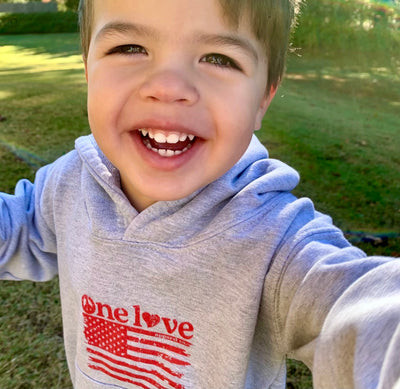10 Fast Facts About Bullying in School That Everyone Should Know
Bullying in schools is unfortunately a very common occurrence. One in five students reported getting bullied at their school. It can be easy for this type of behavior to be overlooked because people don't have a lot of awareness or understanding of the topic.
Kids don't always feel comfortable speaking up when they encounter bullying in school. They might be afraid of retaliation from their abusers if they report what's going on to their parents, teacher, or principal. Bullying can occur anywhere on campus, from the lunchroom to social media platforms their fellow students take part in.
It's important to understand the victims of bullying and the bullies to prevent or stop it from happening. We've gathered the top 10 fast facts about bullying you need to know. Stop bullies in their tracks before their tactics get worse.
1. Anyone Can Get Bullied
There isn't one type of person that can get targeted for bullying. However, some characteristics might make a child more vulnerable. These can include:
- Intelligence
- Introverted
- Anxious
- Isolated
- Disability or illness
- Popularity
You should assume that kids that aren't able to stand up for themselves get bullied. Even popular children can become victims of bullying. A child is bullied because the bully decided to choose them as a target.
You also shouldn't think that someone is bullied because they believe themselves to be a victim. Having that thought process blames them instead of the perpetrator.
2. There Are Multiple Types of Bullying
Bullying doesn't refer to a group of kids ganging up on one person in the playground. It can take many forms and they aren't all physical. Some of the kinds of bullying a kid can experience include:
- Physical
- Cyber
- Prejudicial
- Sexual
- Verbal
- Relational aggression
Knowing the different types is important to know how to stop a bully. Being able to spot what type of bullying is happening in a school setting will help teachers and parents respond accordingly.
3. Bullying Victims Can Be Any Age
Bullying usually starts in late elementary school. It can peak in high and middle school. In some cases, it can start as early as preschool.
Bullying can also carry over to later in life, like when kids enter college. Bullies target anyone that doesn't fit into what they consider to be "normal" regardless of how old they are. Don't think because a child is young that they're not getting bullied by their peers.
4. Bullies Can Be Victims Themselves
There are many causes of bullying. They include:
- Anxiety
- Anger
- Jealousy
- Hate
- Revenge
- Boredom
With that in mind, many bullies share similar personality traits. They could have emotional issues that they're struggling with. These conditions could be getting overlooked by the adults in their lives.
Some bullies might be victims themselves. They could have gotten bullied by their parents, siblings, or other students. Their behavior could also be the result of one of the following things:
- Ineffective discipline
- Insecure homes
- Absence of emotional attachment
- Abuse
- Genetics
It's important to get to the bottom of why a person is a bully. Doing so would not only stop the pattern of behavior from continuing but address any underlying issues that might be present.
5. Bullying Is Rarely Reported
Many bullying victims don't share what's happening to them despite the negative consequences they experience. There are a lot of reasons why they might not report it to an adult. These can include:
- Embarrassment
- Confusion
- Think they can handle it themselves
- Bullying will stop
They might also think that nothing will happen if they report the bullying. As we explore the modern bullying epidemic, we can see a pattern of school systems and adults failing to properly address bullying. A victim might think nothing will change if they tell someone.
6. Many People Witness Bullying
There are other kids present when bullying occurs. Unfortunately, a common reaction is to not react or try to prevent bullying when it happens.
Children might say silent because they don't know what to do. They might also think they'll become a target if they try to intervene. That's why it's important to empower bystanders and give them the tools they need to confidently stop bullying.
7. Being a Victim Can Have Serious Consequences
Many people who have been bullied feel humiliated, embarrassed, and alone. Other problems can arise if bullying isn't addressed. Some of these issues might include:
- Depression
- Academic problems
- Low self-confidence
- Suicidal ideation
Getting bullied in school isn't a rite of passage. It isn't something that every kid needs to go through before becoming an adult. Bullying doesn't make you a stronger person — it can have serious drastic effects if not addressed.
8. "Bully" Used to Have a Positive Meaning
The word "bully" was first used in the early 1400s. The word was first associated with "brother" or "lover." It's thought to have originated from a German or Dutch word.
After that time, the word was used to refer to someone as a "fine fellow." It then became a term for a "swaggering coward" in the mid-1700s. That's when it took on the meaning that we've come to know in modern times.
9. Each Gender Bullies in Different Ways
Girl bullies are often referred to as "mean girls." They use cyberbullying and relational aggression to manipulate situations. Girls tend to bully others of the same gender.
Boys usually use physical tactics to bully others. They also tend to bully kids of both genders. They can be more menacing and impulsive than girl bullies.
10. Disabled Kids Get Bullied More
A disabled child has a higher chance of getting bullied. Children who get bullied also miss out on more school or have difficulties concentrating. As a result, disabled children who are being bullied have a bigger academic disadvantage.
Learn How to Identify and Stop Bullying in School
Bullying in school isn't something that can be ignored. Watch for the physical and emotional signs your child might be exhibiting. They might be a victim of bullying but could be too afraid to tell you.
One Love Apparel Co. is here to take a stand against bullying. Our goal is to empower each other to spread love and encouragement. Shop our online collection of t-shirts, sweatshirts, and more.



